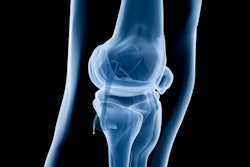Dear AuntMinnie member,
In this edition of our MRI content area highlight, we're showcasing a study that shows hearing loss may increase dementia risk in seniors not yet cognitively impaired -- in ways distinct from those that tend to be associated with conditions such as Alzheimer's and cerebrovascular disease.
Researchers from Imperial College London in the U.K. found that, compared with older adults who did not have hearing impairment, those who did had faster rates of whole brain atrophy. Click here for all the details.
After you've gotten the full details on this story, check out our coverage of a study that questions the clinical value of some knee and hip MRI exams; another that shows the effect of preeclampsia on the maternal heart and fetal brain; a third that demonstrates how disease risk factors such as diabetes, air pollution, and alcohol abuse affect vulnerable areas of the brain; and a fourth that outlines how the modality is helping clinicians predict the severity of multiple sclerosis fatigue.
We're also drawing attention to a study that explored the use of MRI with ultrasound for prostate cancer treatment and another that describes how MRI imaging with PET has revealed positive findings for people with late-life depression -- namely that they have preserved "synaptic density" and thus are likely to respond to treatment. When you've read those articles, take a look at our coverage of how MRI shows that people with a greater sense of purpose have healthier brains.
Finally, don't miss our story on a team of French researchers who unveiled 11.7-tesla MRI scans of the human brain as part of the Iseult Project of the French Alternative Energies and Atomic Energy Commission (CEA).
Our MRI content area keeps you current on the modality's many benefits. We invite you to check it out regularly, and as always, if you have MRI topics you'd like us to consider, please contact me.



.fFmgij6Hin.png?auto=compress%2Cformat&fit=crop&h=100&q=70&w=100)




.fFmgij6Hin.png?auto=compress%2Cformat&fit=crop&h=167&q=70&w=250)











